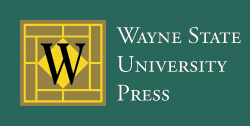Australian Authors in the House of William Morrow: Writing Good Commercial Fiction for the US Market
Abstract
This article investigates the publication of Australian authors of “good commercial fiction” in the United States in the 1950s and 1960s. When the early careers of Morris West, Jon Cleary, and George Johnston are traced through their association with William Morrow and Company, the importance to these careers of publishers, editors, literary agents, and other stakeholders becomes apparent. Each author built a substantial career of largely successful fiction over successive titles with the ongoing support of Morrow as publisher, plus key links with editors and literary agents. For West and Cleary in particular, the United States became a primary place of publication and editorial advice across these decades. While the good commercial fiction of these authors is rarely acknowledged in Australian literary history, their position within the field of book history and print culture clearly shows how important these examples are to understanding the dynamics of transnational print culture and its significant effect on the ways in which Australian novels were commissioned, edited, published, and reviewed, particularly in the United States. Revealed in correspondence and other publishing records, the often complex negotiations required to transform an Australian novel into a US book exhibit the cultural and commercial contingencies experienced throughout an author’s career, demonstrating that good commercial fiction provides a rich field of inquiry to expand and complicate our ideas of Australian authorship.
Recommended Citation
Osborne, Roger and Carter, David
(2021)
"Australian Authors in the House of William Morrow: Writing Good Commercial Fiction for the US Market,"
Antipodes: Vol. 35:
Iss.
1, Article 13.
Available at:
https://digitalcommons.wayne.edu/antipodes/vol35/iss1/13
